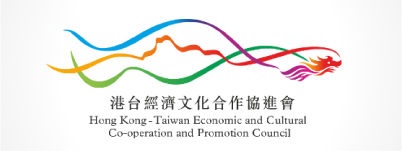Speeches (1295)

主頁 > Speeches (1295) - CMAB
|
Taiwan's Choice :Early Dialogue on Reunification |
|
(This article is based on a speech delivered by Secretary for
Constitutional Affairs, Mr Stephen Lam, at a seminar organised
by The Chinese Manufacturers' Association of Hong Kong.)
In July 2002, the Constitutional Affairs Bureau of the Hong Kong Special Administrative Region Government assumed responsibility for covering Taiwan-related issues for the HKSAR. Soon thereafter, a foreign trade representative stationed in Taipei came to see me. He asked, "What would be the advantages for Taiwan to pursue reunification?" I said that reunification would be an ideal arrangement. Firstly, reunification would remove all political uncertainties for Taiwan. Secondly, Taiwan would have much broader scope for economic and trade development in the Mainland. Thirdly, Taiwan would have more latitude to function at the international level. Let me elaborate on these three considerations. Firstly, under the Basic Law, we can participate as "Hong Kong, China" in international organisations such as the WTO and APEC. The Hong Kong Chief Executive takes part as equals with foreign leaders at these international forums. At the moment, Hong Kong is organising the WTO Ministerial Conference for 2005 and the International Telecommunication Union Conference in 2006. I am sure Taiwan would welcome such latitude to operate at the international level. Secondly, the economies in the Asia Pacific Region are getting drawn ever closer together. The process of regional economic integration in the Asia Pacific has begun. The Mainland Chinese market will be one of the most important engines driving this process. China is now the third largest trading entity in the world. By 2020, the China's GDP is expected to reach US$4 trillion, and external trade US$2 trillion. The railway and highway networks in the Mainland will continue to expand. There will be over 30 major projects in the development of nuclear power plants alone. In Hong Kong's case, we are planning with Mainland counterparts to build the Hong Kong-Zhuhai-Macao Bridge and a high-speed railway to Guangzhou. Infrastructural projects such as these will help enhance the capacity to facilitate the transportation of goods from Guangdong and other neighbouring provinces in western China all the way to our International Airport and Container Port. They will also help to enhance tourism growth in Hong Kong. China is furthering the process of economic integration in the Asia Pacific Region. After concluding the "Closer Economic Partnership Arrangements (CEPA)" with Hong Kong and Macau, Beijing is discussing free-trade arrangements with ASEAN, Australia and New Zealand. Enterprises all over the world are seeking a market share in the expanding economy of Mainland China. If Taiwan continues to stand on the sidelines, and does not take part proactively in the process of economic integration, Taiwan will be marginalised. Taiwan's choice is clear: "Return to the fold. Be part of the family". The Asian Financial Crisis hit Hong Kong in 1997. Since then, we have gone through a longish economic downturn and an extended period of deflation. Economic growth has resumed and the prospects for the future are quite bright. Various factors have contributed to this. Under CEPA, goods from Hong Kong can enter the Mainland market duty-free. An "Individual Travel Scheme" was also introduced to allow Mainland visitors to come to Hong Kong without having to join package tours. Aside from internal adjustments to our economy, these initiatives have added significant impetus to resumption of economic growth in Hong Kong. Similar arrangements have been proposed for Taiwan. Over ten categories of fruits produced in Taiwan can be exported to Mainland duty-free. Individual Mainland visitors will be allowed to visit Taiwan. It would be helpful to the Taiwan economy for if these offers were to be taken up. Economic inter-dependence will help to strengthen the foundation for continuing peace. Thirdly, the future is by definition uncertain. Hong Kong went through such a period of the relative uncertainty in the 1980's. But when the people of Hong Kong began to appreciate that "One Country, Two Systems" was for real and preparations for implementing the Basic Law were well under way, confidence in the future took root. Many Hong Kong residents who had previously emigrated to foreign countries began to return. The leaders in Beijing have stated on different occasions that the Hong Kong and Macau issues have been resolved, and that more flexibility will be exercised in dealing with Taiwan. For example, Taiwan will be allowed to keep its Army. The recent visits to the Mainland by the Chairmen of the Kuomintang and People's First Party have turned a new leaf in cross-strait relations. One handshake has changed the political landscape which has lasted for almost 60 years. Problems left over from history are very difficult to resolve. They are best resolved through dialogue. Early dialogue on reunification is Taiwan's best choice. Leaders in Taiwan should seize the moment and do not allow this opportunity to slip out of their hands. Previously, reunification seemed like a distant dream. The recent visits by Lien and Soong have given the process new impetus. The Hong Kong community fully supports reunification. I am hopeful that provided that we can all work together, people of our generation will have the opportunity to witness the reunification of the country within our lifetime. |





























